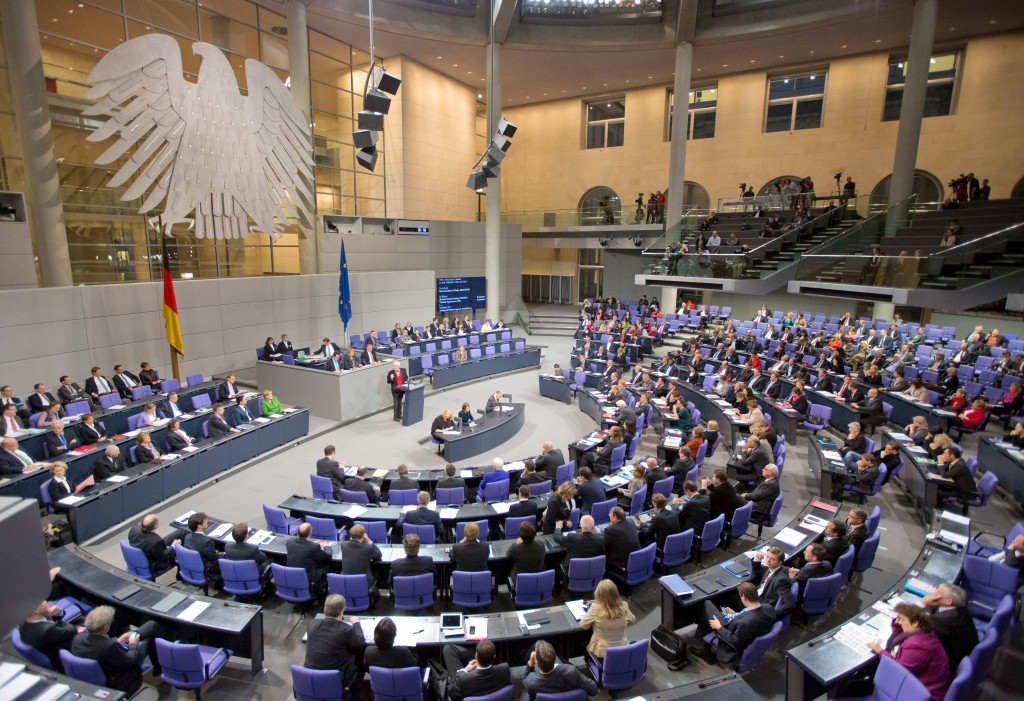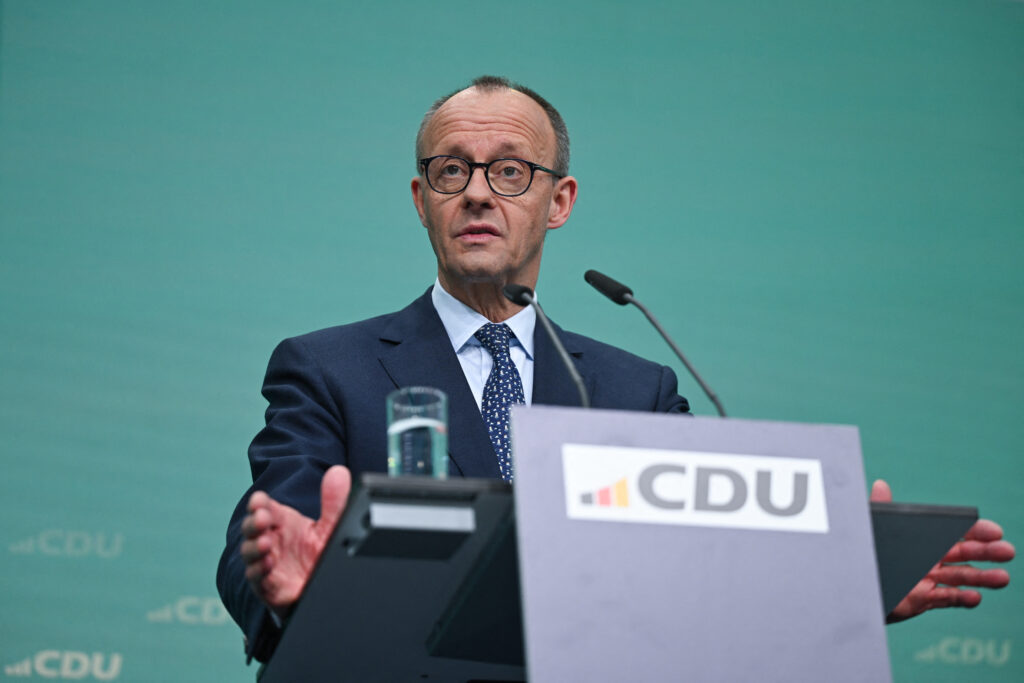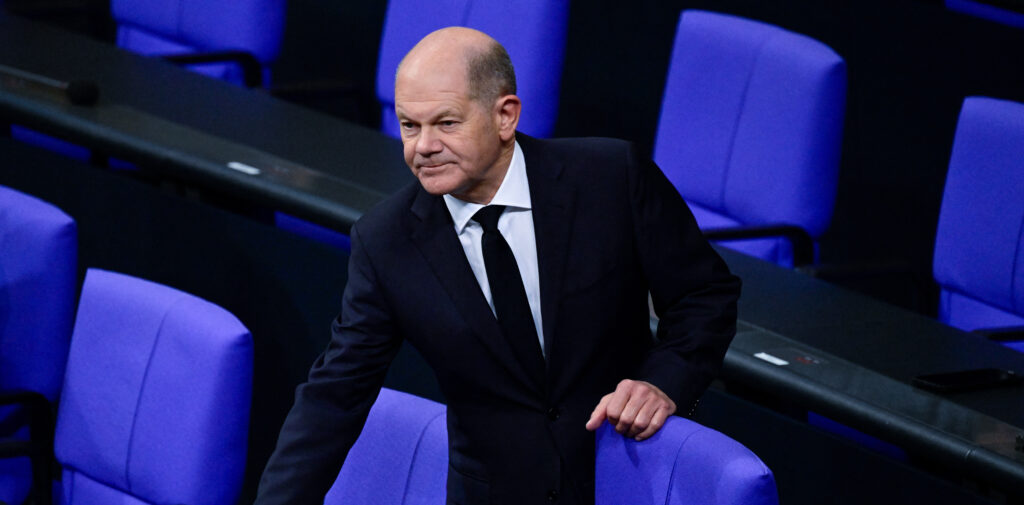Brussels – At the Bundestag, history has just been rewritten. Not just national history but probably European history. The German parliament has approved a gigantic financial package proposed by the next federal chancellor, the leader of the CDU Friedrich Merz, to revive the national economy asphyxiated by more than two years of recession. Key elements of the plan include reforming the debt brake on defence investment, which breaks a tradition of strictness in the management of public accounts.
If no surprises come from the Constitutional Court, this opens up a new political phase on the Old Continent in which Germany may no longer be the paladin of austerity but, on the contrary, leads the way for the increasing (debt) investments in defence that the Twenty-Seven will have to undertake in the coming years.
The vote at the Bundestag
The Bundestag, the lower house of Berlin’s legislature, gave its verdict today (March 18) on the entire package put on the table earlier this month by Friedrich Merz, the leader of the Christian Democrats and federal chancellor in pectore, to get the German economy, which has been in recession for more than two years, back on track. The main components of his shock plan are two: a 500 billion special fund to cover the industrial and infrastructure investments the country will need to sustain in the coming years and the reform of the constitutional debt limit.

In the end, the vote ended with 513 in favour and 207 against: supporting it, as expected, were the Union (CDU/CSU) parties and the SPD Social Democrats—who will make up the next federal executive—plus the Greens(Bündnis 90/Die Grünen). The environmentalists’ support was key to passing the two-thirds threshold (489 votes out of 733) needed to reform the Constitution. The approval of the Bundestag now paves the way for the examination of the measure by the Bundesrat, the upper house representing the federal states, where a positive vote is expected on Friday (March 21).
Merz and his allies had pushed for the package to be voted on by the outgoing legislature instead of the one that emerged from the early elections in February, which will take office next March 25. Here, the two forces at the extremes of the parliamentary arc will have a bloc minority of 216 out of 630 MPs: the ultra-right of Alternative für Deutschland (AfD) is opposed to reshaping the debt brake, while the radical left of Die Linke opposes increased military spending.
But even today, in the chamber, there was no shortage of attacks against Merz and his allies. Christian Dürr, group leader of the FDP liberals, accused the leader of the CDU of putting together a “debt coalition,” breaking all the promises made in the election campaign. AfD co-leader Alice Weidel denounced the worst “electoral fraud” in Republican history in complicity with the “losers” of the polls (Social Democrats and ecologists), effectively bypassing the voters’ verdict.
“The acceptance of this debt package will be a huge burden, especially for future generations. This is the worst voter deception that the Federal Republic of Germany has experienced in its history.” #debt brake #Debtorgy #Merz pic.twitter.com/0FTU3mFTL7
— Alice Weidel (@Alice_Weidel) March 18, 2025
Although the Grünen had supported his plan, Co-Chairwoman Britta Hasselmann complained about the “populism and arrogance” demonstrated by Merz in the election campaign, during which he had harshly attacked progressives precisely because they defended the need for more debt-financed investments. The co-leader of the Linke, Sören Pellmann, branded as “unacceptable” the rearmament and militarisation of Germany.
Change of pace
The Schuldenbremse—literally “brake on debt“—is the combination of a series of amendments to the Basic Law (Germany’s Basic Charter) introduced in 2009, which set a ceiling of 0.35 per cent of GDP to the new debt that the federal government can take on each year. Not without some irony, it was the same great coalition of Christian Democrats and Socialists that introduced it 16 years ago that has now put it on the back burner. At its head then was Angela Merkel in her first term, during which the sovereign debt crisis that seemed on the verge of collapsing the Eurozone had deflagrated.
For the sake of precision, the reform approved today does not loosen the brake for any spending chapter of the national budget but only for defence-related items (including civil defence, intelligence services, and cybersecurity) that exceed 1 per cent of GDP. At the same time, the 16 Länder that make up the Federal Republic will be allowed to spend 0.35 per cent of their domestic product, whereas currently they could not exceed even one cent. Overall, the value of the plan should be around 1 trillion euros.

What was established by today’s vote is undoubtedly a radical change in the rigorist positions of Germany, traditionally at the forefront of the so-called frugal countries, which opens the door, at least potentially, to a new phase of massive borrowing by European chancelleries. A real “epochal turnaround” (Zeitenwende), as Merz himself called it. The second after the one announced in 2022 by outgoing Social Democratic Chancellor Olaf Scholz, when, in the aftermath of the Russian invasion of Ukraine, he had the Bundestag approve a 100 billion fund for national rearmament, anticipating the ReArm Europe by three years.
Today, Germany is thus freeing itself from its own legal shackles and preparing to take the lion’s share of the blame among the Twenty-Seven, who, under Ursula von der Leyen’s plan for continental rearmament, will be able to invest up to 650 billion in defence without caring about stability pact constraints. The leader of the CDU has caught the spirit of the times across the Old Continent and is ready to ride it. “For at least a decade, we have perceived a false sense of security,” he told the House, adding that what the MEPs accomplished today “can only be the first major step toward a new European defence community.”
Watch out for Karlsruhe
All this unless the Federal Constitutional Court has something to say about it. The judges in Karlsruhe should examine closely the claims made in recent hours by several AfD and FDP deputies, who do not intend to let Merz get away with what they denounce as palace politics.
The Court’s decisions could throw a spanner in the works of the next government even before it takes office. For example, forcing it to resubmit its proposals in a more politically balkanized chamber or even declaring unconstitutional (in whole or in part) the measures that Union, Spd and Grünen have laboriously agreed upon.

This would not be the first time. Already in November 2023, a Karlsruhe ruling had blocked the shift of some unused funds from an instrument originally designed to combat COVID-19, thus opening a 60 billion hole in the national budget and exacerbating the clashes between the partners of the quarrelsome semaphore coalition, which would implode within a year.
English version by the Translation Service of Withub








